Take flight with 5 stair exercises

Turn any staircase into your playground!
Try this fun, quick workout you can do on any staircase to tone and strengthen your lower body. Take flight with this routine that makes stair climbing more fun!
Head to the bottom of a staircase in your home or safe outdoor space. Be sure you can access a stable railing or wall for balance and support. Complete each of the following exercises once as instructed or in a way that works best for your body and your ability.
Stair plank
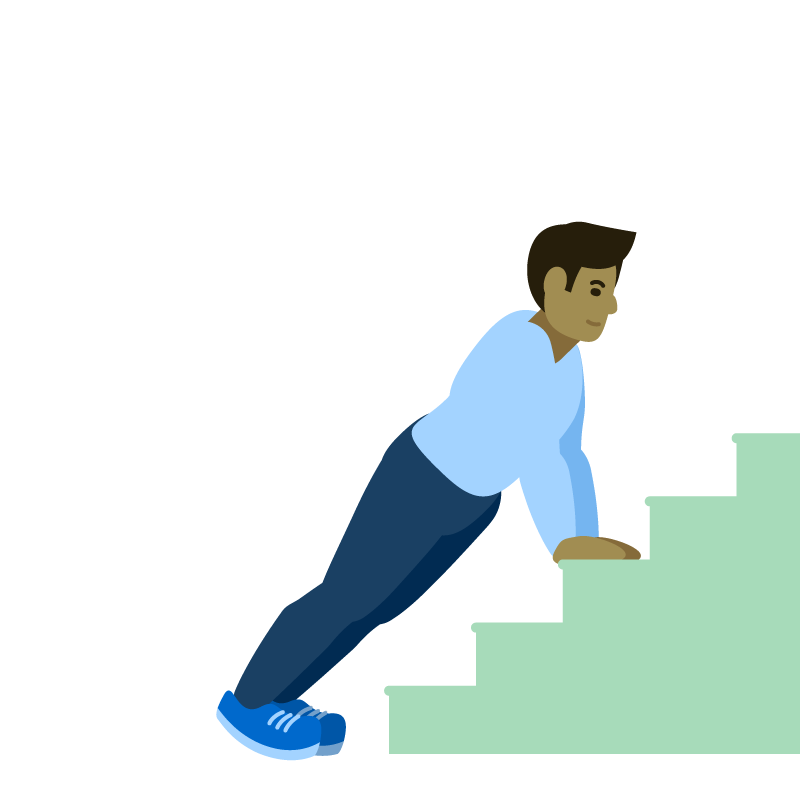
Face the stairs and lean forward until your hands reach a step. Make sure your shoulders are above your wrists and keep your body straight. Your core should be supporting you, and you should feel a stretch along the backs of your legs in this diagonal plank position. Hold your stair plank for 15-30 seconds, then stand back upright.
Stair climb
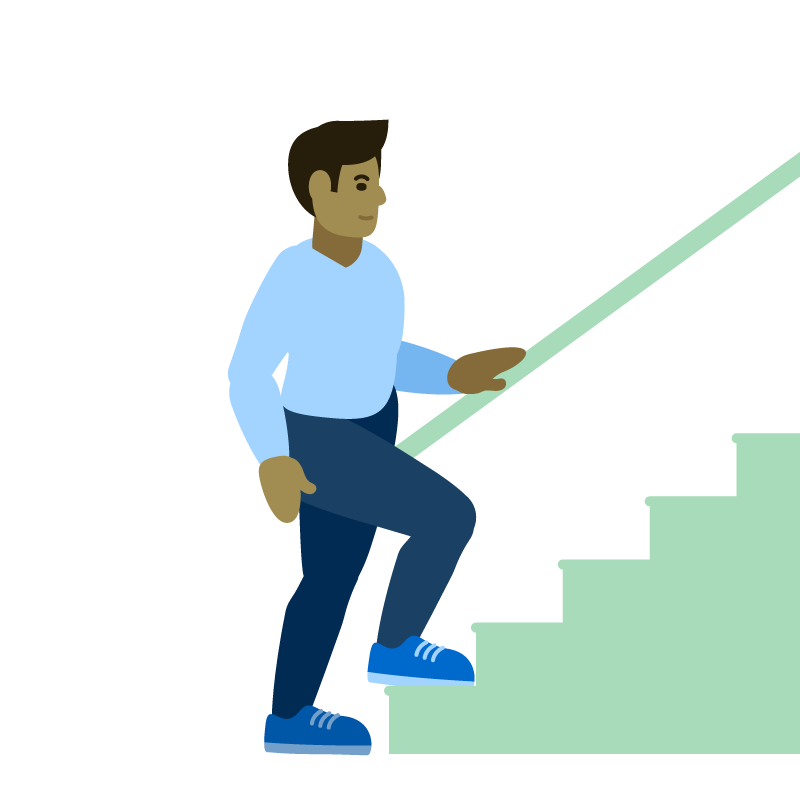
Now that you’ve activated the entire length of your body, raise your heart rate by climbing the flight of stairs. Nothing fancy about this exercise — you’re just getting your body moving. Climb up and down the staircase at a challenging but steady pace 2-3 times.
Calf raises
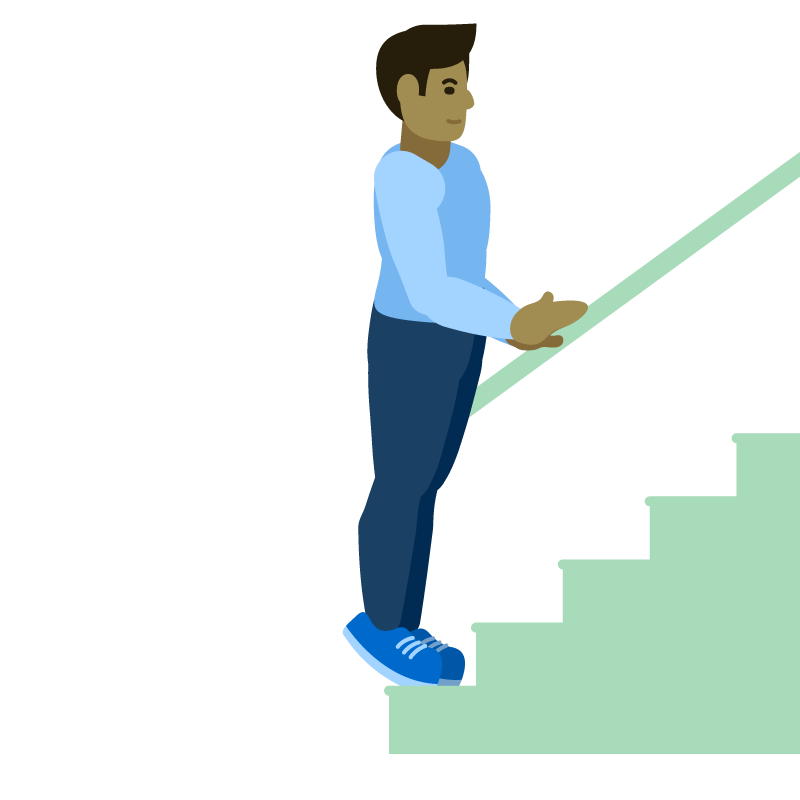
Stand on the first step facing the staircase and make sure you can hold onto a stable railing or wall for support. With the backs of your feet hanging slightly off the step, use the railing or wall to balance as you press through the balls of your feet. Lower and lift your heels 10-20 times.
Mini pistol squats
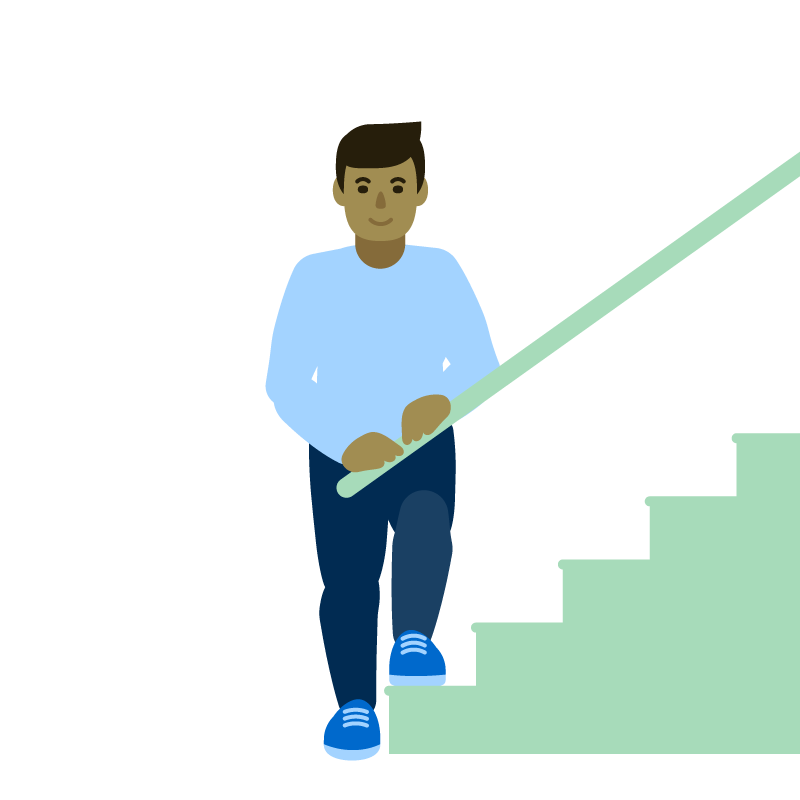
Stand at the bottom of the staircase facing sideways and hold the stable railing or wall in front of you. Step onto the first step with the foot closest to the stairs. Once your stepping leg is straight, your other leg should be hanging off the ground. Lower it back down, then press through your inside foot to stand up again. Lift and lower 10-20 times, then turn around and do the same thing on the other side.
2-at-a-time climb
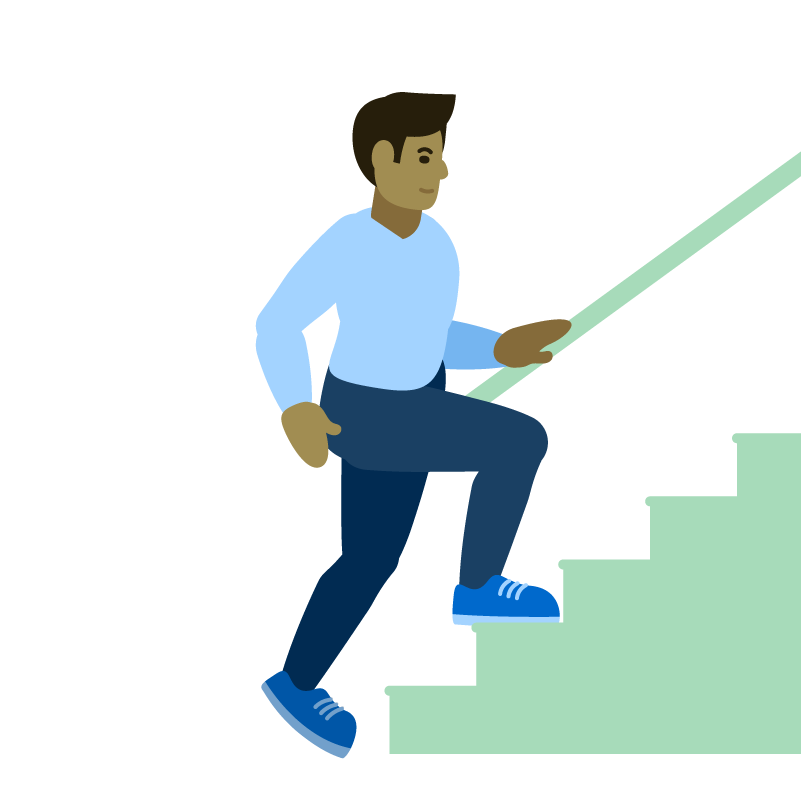
Finish with a strength and endurance challenge: Climb your flight 2-3 times, taking two steps at a time on the way up. Your leg muscles will benefit from the added force needed for these bigger steps!
Hit the stairs and climb your way to higher fitness!
Was this article helpful?
Don't wait! Unlock a healthy, happy new year, at no cost to you.
This content is not intended to be a substitute for professional medical advice, diagnosis or treatment. Always seek the advice of your physician or other qualified health provider with any questions you may have regarding a medical condition.
